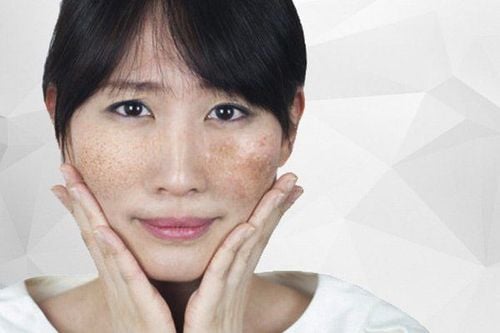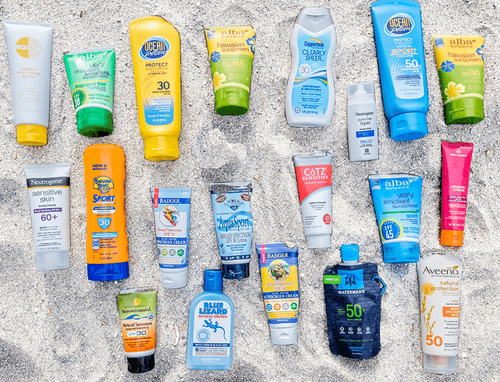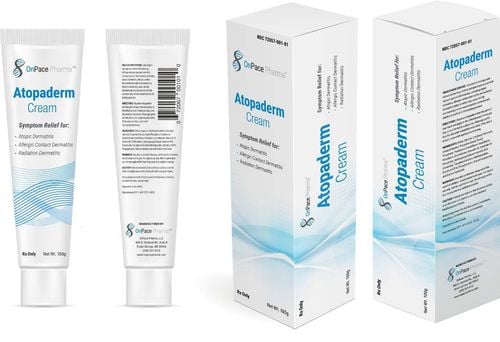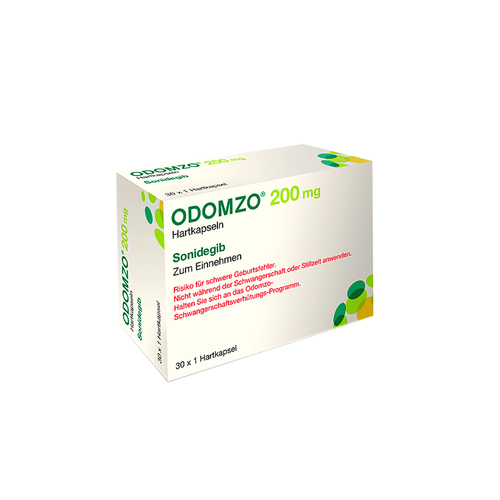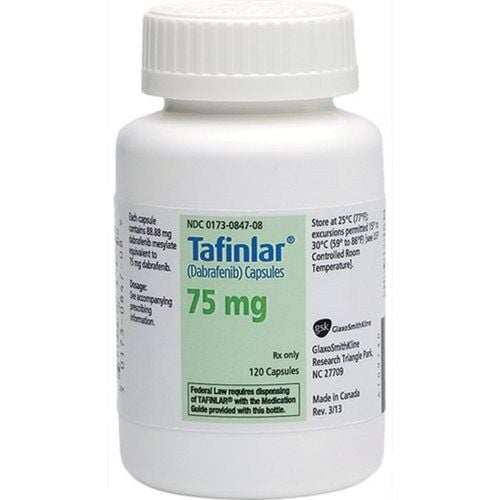This is an automatically translated article.
The article was professionally consulted by Dr. Le Thi Hong Anh - Pediatrician - Department of Pediatrics - Neonatology, Vinmec Central Park International General Hospital.
Young children with sensitive skin are very vulnerable to the sun's radiation. The best protection for children is to avoid exposing them to the sun, or to use sunscreen if there is no other option.
1. At what age can children use sunscreen?
All ages can use sunscreen, but with different recommendations:For infants and children under 6 months: Children under 6 months should not use sunscreen without consulting and indicated. doctor. The best way for babies under 6 months is to keep them in the shade or cover them with clothing. For children 6 months and older: Use a children's sunscreen with an SPF of 30 - 50 and apply it to all uncovered skin.
2. How to use sunscreen to get the best effect?
Before using sunscreen on children, it is important to test the reaction of the child's skin to the intended cream 48 hours in advance by testing a little cream on a small part of the child's skin. If the child shows signs of an allergic reaction such as a rash or hives, discontinue use immediately and consult a specialist.Sunscreen needs to be applied to the skin 15 - 30 minutes before going out. Pay attention when applying sunscreen, do not let the cream get into the eyes of children. If the sunscreen is water resistant, it should be reapplied every 2 hours; If after the child is exposed to water or the cream is not waterproof, the time to reapply the cream will be shorter.
3. What type of sunscreen is safe for children?
When choosing a sunscreen for children, keep the following points in mind:Choose one that is formulated specifically for children and is water resistant. To avoid an allergic reaction, choose a cream that contains titanium dioxide and zinc dioxide, as they are very hypoallergenic ingredients. Choose a cream that can protect against both UVA and UVB rays.

Loại kem chống nắng nào an toàn cho trẻ nhỏ?
4. Some tips to protect children from the sun
Protect young children from heat and sunlight in the following ways:Avoid going out when the sun's intensity is strongest. Stay in the shade as soon as you can. Use clothing that covers as much as possible. Remember to wear a wide-brimmed hat to protect both the neck and the nape of the neck. Wear sunglasses. Keep babies hydrated by giving them enough breast milk or formula if they're under 6 months old, and giving them enough milk with a little extra water if they're 6 months or older. For children to be healthy and develop well, it is necessary to have a nutritious diet in terms of quantity and quality balance. If children are not provided with adequate and balanced nutrients, it will lead to diseases of excess or lack of nutrients, which adversely affect the comprehensive development of children in terms of physical, mental and motor skills.
Children who do not eat properly are at risk of micro-mineral deficiency causing anorexia, growth retardation, malabsorption,... If they notice the above signs, parents should supplement their children with products. The supplement contains lysine, essential micro-minerals and vitamins such as zinc, chromium, selenium, and B vitamins to help fully meet the nutritional needs of children. At the same time, these essential vitamins also support digestion, enhance nutrient absorption, help improve anorexia, and help children eat well.
Parents can learn more:
Signs of zinc deficiency in children
Micronutrient deficiency and failure to gain weight in children
Please regularly visit Vinmec.com website and update useful information to take care of your child. Take care of the baby and the whole family.
Article reference source: FDA and whattoexpect.com






